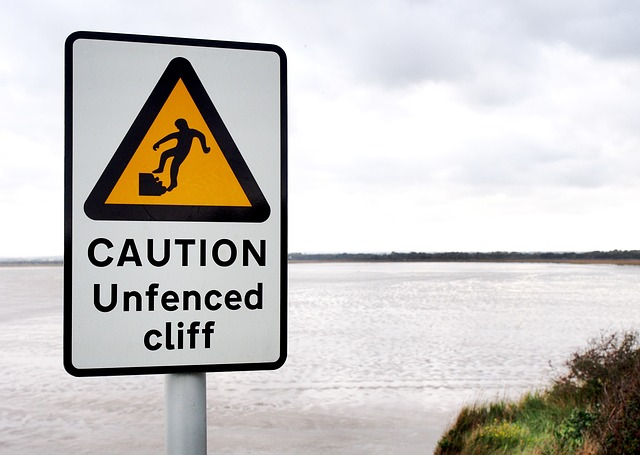General Liability Insurance: The Must-Have Protection for Your Business
Last Updated on June 16, 2023

As a business owner, you need to protect your company from financial and reputational damages that could occur as a result of third-party claims. That’s why it’s important to make sure you have the right insurance coverage in place to safeguard your livelihood.
With almost 30 million small businesses in the US today, a shocking 40%+ are either uninsured or underinsured. This is a dangerous practice. General liability insurance protects small businesses from a variety of potential risks. Here’s what you need to know about general liability insurance and why it’s so important.
What is general liability insurance for business and what does it cover?

Small business owners face a number of risks, from property damage to personal injury claims. General liability insurance protects you from these risks by providing coverage for things like bodily injury, property damage, and legal expenses. It can help protect your business if someone gets hurt on your premises or if you are sued for negligence.
General liability business insurance can help protect your company from a variety of risks, including:
Bodily injury: If someone is injured on your premises or as a result of your business activities, your general liability policy can help cover medical expenses.
Property damage: If you damage someone else’s property, your general liability policy can help pay for repair or replacement costs.
Reputational harm: If you are accused of libel, slander, or copyright infringement, your general liability policy can help cover legal expenses.
Advertising injury: If you are accused of false advertising, your general liability policy can help cover legal expenses.
As a small business owner, it’s important to have the right coverage in place to protect your business from potential risks. General liability insurance can help provide that protection, giving you peace of mind in knowing that your business is covered.
What is not covered by general liability business insurance?

General liability business insurance does not cover everything. Here are some examples of what is not covered:
Intentional acts: If you or your employees intentionally injure someone or damage property, your general liability policy will not cover the resulting costs.
Professional services: If you are in a professional service business, such as accounting or legal services, your general liability policy will not cover any damages arising from your professional services.
Automobile liability: General liability business insurance does not cover any automobile-related liabilities, such as accidents caused by your employees while they are driving for work. You will need a separate automobile liability policy to cover these risks.
Employee injuries: General liability business insurance does not cover injuries to your employees. You will need a separate workers’ compensation policy to cover these risks.
Product liability: General liability business insurance does not cover damages caused by your products. You will need a separate product liability policy to cover these risks.
Dishonesty: General liability business insurance does not cover any losses caused by dishonesty, fraud, or theft.
What are some of the benefits of general liability insurance?

There are many benefits of carrying general liability insurance, including:
- Protection from financial ruin: A major claim or lawsuit can bankrupt a small business. General liability insurance can help cover the costs of legal expenses, settlements, and judgments.
- Peace of mind: Knowing you are protected from the potentially devastating financial effects of a lawsuit can help you sleep better at night.
- Attracting clients: Many businesses require proof of insurance before they will work with you. Carrying general liability insurance can help you win new business.
- Complying with the law: Some states and localities require businesses to carry general liability insurance.
Who needs general liability insurance?

Businesses of all types and sizes can benefit from having a general liability insurance policy in place. But for small businesses, which often have limited resources and are more vulnerable to risk, having this type of coverage can be critical.
Here are just a few examples of businesses that can benefit from general liability protection:
Construction trades: Artisan contractors and other construction professionals are often required to have general liability to get professional licenses or work on certain projects.
Fitness professionals: Personal trainers might need to be a policyholder for some professional certifications, and it can be required if they work at a gym.
Cleaning businesses: General liability can protect cleaners from financial losses if they accidentally break or damage something while on the job.
Restaurants and food service: Slip-and-fall accidents are a risk that food business owners worry about. General liability can help cover the costs of any medical bills or property damage claims that might result from these types of accidents.
How much does general liability insurance cost, and how can you save money on it?

The cost of general liability insurance varies depending on the business. Some low-risk businesses may only have to pay $11 per month, while others may have to pay much more. Several factors affect how much you’ll pay for your policy, including:
Your industry: Some industries are inherently more risky than others, and will therefore be more expensive to insure.
Your business operations: The way your business operates will also affect your rates. For example, businesses that involve a lot of customer interaction or that use dangerous equipment will typically pay more for insurance.
Business size: Larger businesses are usually required to carry higher limits of insurance, which can cost more.
Where you do business: Insurance rates can vary depending on your location. Businesses in high-crime areas or that are located in natural disaster zones will typically pay more for coverage.
How much coverage you want to purchase: The amount of coverage you need and the limits you select will affect the cost of your policy. Purchasing more coverage or higher limits will usually cost more.
Policy limits: The policy limits you select will also affect the cost of your insurance. Higher limits will typically mean a higher premium.
Insurance rates can vary significantly from one insurer to the next, so it’s important to shop around and compare rates before purchasing a policy. Fortunately, we’ve done most of the heavy lifting. Here are our top general liability insurance picks:
Choose Smart General Liability Insurance Coverage Limits

The most important factor in choosing the right amount of general liability insurance coverage for your business is to make sure you are adequately covered in the event of a claim. You don’t want to be underinsured and have to pay out of pocket for damages, but you also don’t want to overpay for coverage you may not need.
There are a few different ways to determine how much coverage you should carry. One is to review your business’s financial statements and calculate the number of assets you have that could be at risk if you were sued. Another is to review your industry’s average cost of claims and purchase coverage that would cover the vast majority of potential claims.
You should also consider the deductible you are comfortable with paying. A higher deductible will lower your premium, but it also means you will have to pay more out of pocket if you do have a claim. So choose a limit that will protect you, but one that’s not so high that it’s overly costly.
Once you have determined how much coverage you need, you can start shopping around for the best policy. Be sure to get quotes from multiple insurers and compare coverages and costs. You should also read the fine print of any policy you are considering so you know exactly what is covered and what is not.
How to get a general liability insurance quote?

The internet has made it easier than ever to get a general liability insurance quote. You can be insured within minutes, not days. All you need is some basic information about your business and a credit card.
Getting a general liability insurance quote online is fast and easy. Just follow these steps:
1. Go to the website of an insurance company that offers general liability insurance.
2. Enter your business information, including your business name, contact information, and credit card number.
3. Review the quote and make sure you understand the coverage.
4. Purchase the policy and print out a copy for your records.
Yep, it’s really that simple. So what are you waiting for? Get a general liability insurance quote today and protect your business from costly lawsuits.
Is Cheap General Liability Insurance Worth It?

When it comes to business insurance, the old adage “you get what you pay for” is certainly true. The cheapest general liability insurance policy might save you a few dollars in premiums, but it could end up costing you a lot more if you have to make a claim.
The problem with cheap insurance is that it often doesn’t provide the coverage you need when you need it. For example, a cheap policy might have a low limit for property damage, meaning that if your business causes serious damage to someone else’s property, you could be on the hook for the rest of the costs. Or, a cheap policy might not cover certain types of claims, such as defamation or product liability.
In the end, it’s important to make sure that you’re getting the coverage you need at a price you can afford. Yes, cheap insurance might sound like a good deal, but it could end up costing you a lot more in the long run.
What is a certificate of insurance?

A certificate of insurance (COI) is a document that provides proof that you have the insurance coverage your client or customer requires. It lists the types and limits of coverage you have, as well as the name of your insurance company and your policy number. Your COI should also list the name of the individual or business who is requesting it.
Businesses or customers may ask to see a COI before they agree to work with you. They want to make sure that you have the insurance coverage they require, and that if something goes wrong, they won’t be held liable.
For example, let’s say you’re a plumber and your customer requires you to have $2 million in general liability insurance. Your COI would list your general liability policy limit as $2 million. If you only have $1 million in coverage, your customer could hold you responsible for any damages that exceed $1 million.
Why do businesses need a certificate of insurance?

Businesses need a COI for a few different reasons. First, as we mentioned, it can help you win new business. If a potential customer or client sees that you have the insurance coverage they require, they’re more likely to do business with you.
Second, a COI can protect your business from liability. If something goes wrong and someone sues you, your insurance company will usually provide you with a lawyer and pay any damages you’re liable for, up to the limits of your policy. This can help you avoid financial ruin if you’re faced with a lawsuit.
Finally, having a COI can give you peace of mind. Knowing that you have the insurance coverage you need can help you sleep better at night.
How do claims factor into general liability insurance costs?

Claims are one of the main drivers of costs for general liability insurance. When an insured has a claim filed against them, the insurer must pay for any damages that are awarded. The size of the award and the number of claims filed can have a big impact on premiums.
Insurers use claims data to help determine how much coverage to provide and how much to charge for premiums. If an insurer sees that a particular business has a high number of claims, they may charge a higher premium to cover the increased risk. Conversely, if a business has few or no claims, the insurer may offer a lower premium.
The impact of claims on costs can be significant. For example, if a business has a large number of claims, it could see its premiums increase by hundreds or even thousands of dollars. Conversely, if a business has few or no claims, it could see its premiums decrease by the same amount.
Businesses should be aware of the impact that claims can have on their insurance costs and take steps to minimize the number of claims that they have. One way to do this is to carefully screen employees and customers to minimize the chances of problems arising.
Another way to reduce claims is to have strong policies and procedures in place to prevent accidents and injuries from happening. By understanding how claims impact insurance costs, businesses can be better prepared to manage their expenses and protect their bottom line.
Other Common Small Business Insurance Coverage

There are a few different types of insurance that businesses often bundle with general liability insurance. The most popular is property insurance, which covers the expense of business property damage. This might include structures, equipment, and inventory.
A business owners policy, or BOP for short, is a one-two insurance punch that combines both commercial and general liability insurance into one policy.
Another type of insurance that businesses often bundle with general liability is automobile insurance. This covers the cost of damages to vehicles that are used for business purposes.
Businesses may also choose to bundle workers’ compensation insurance with their general liability policy. This covers the cost of medical expenses and lost wages for employees who are injured while working.
Bundling different types of insurance can help businesses save money on premiums. It can also make it easier to manage multiple policies since they will all be under one roof.
The Bottom Line

Small business insurance is essential for protecting your company from unforeseen accidents, injuries, and legal claims. While the specific coverage you need will vary depending on your business, most small businesses should have general liability insurance.
This type of policy provides broad protection against a wide range of potential liabilities, including third-party property damage, bodily injury, and product liability. General liability insurance also typically includes coverage for attorney’s fees and other legal costs incurred in defending a claim.
If you don’t currently have general liability insurance, be sure to get a quote today.
Don’t forget to read our comprehensive reviews of the best small business insurance policies before buying coverage. We can help you find the right policy at the right price for your business.
Suggested Reading
Errors and Omissions Insurance: A Protective Small Business Shield
Yes, Small Business Pros Need Professional Liability Insurance (PLI)
Business Owners Policy (BOP) Insurance Shields Against Financial Losses
The Importance of Data Breach Insurance for Small Businesses
Workers Compensation Insurance Decoded